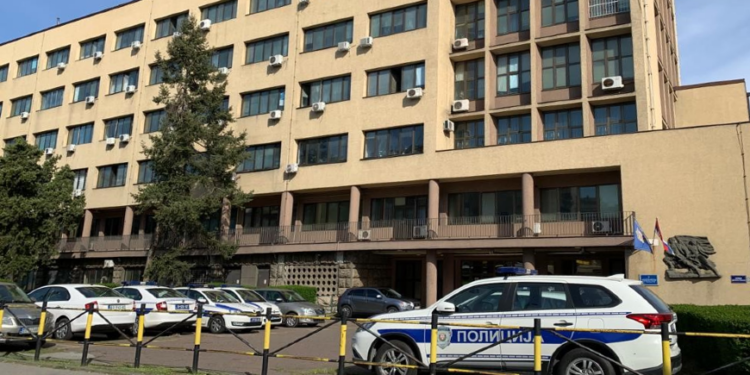The visit focused on the treatment of persons deprived of their liberty by the police and the effectiveness of investigations carried out by prosecutors and internal oversight bodies into allegations of ill-treatment by the police. The conditions of detention and treatment of remand prisoners, as well as of juvenile offenders in the intensive intervention unit of the Kruševac Educational and Correctional Institution (VPD), were also examined.
The CPT report concludes that persons deprived of their liberty by the police continue to run the risk of ill-treatment, which in some instances might amount to torture. Numerous allegations of physical ill-treatment of criminal suspects by police officers were received primarily in the Belgrade area. The allegations consisted of punches, slaps, kicks, and blows with truncheons, as well as practices such as placing a plastic bag over the head of criminal suspects and administering electric shocks from a hand-held device at the time of the arrest or at the police station. The Committee calls upon the Serbian authorities to adopt and implement a coherent strategy to eradicate police ill-treatment which should include a message of zero-tolerance from the highest political level, mandatory training of police inspectors on investigative interviewing skills and the strengthening of legal safeguards for criminal suspects, especially concerning the right to access a lawyer and the video-recording of police interviews with individuals suspected of committing a crime.
As regards the effectiveness of prosecutorial investigations, the CPT found that there was a lack of promptness and thoroughness in investigating cases of alleged ill-treatment by law enforcement officials, and a failure to apply appropriate investigative techniques. The CPT advocates for the work of the prosecutors to be reorganized with the appointment of specialised prosecutors, and for adapted investigative techniques.
The CPT found that the pre-trial detention facilities visited were severely overcrowded. For example, at Novi Sad District Prison, persons were provided less than 2 m2 of living space. These conditions were exacerbated by the poor state of repair and hygiene in the cells and the impoverished regime of activities offered to remand prisoners who spent more than 22 hours a day in their cells. The CPT puts forward concrete recommendations to address these shortcomings.
At the Kruševac VPD juvenile institution, the CPT received numerous allegations of slaps and blows with rubber truncheons to the thighs and buttocks of juveniles inflicted by staff as a form of corporal punishment. The alleged ill-treatment was a response to those juveniles involved in incidents of inter-prisoner violence, escape attempts or disobedient behaviour. The CPT recommends that the Serbian authorities take concerted action to promote a change of culture within the institution to ensure that staff are properly trained and equipped to address challenging behaviour without resorting to ill-treatment.
In their reply, the Serbian authorities provide information on the measures taken to implement the CPT’s recommendations. Information is provided on the training activities developed for police officers on interviewing techniques and the treatment of persons in custody, on the application of the methodology for investigating cases of alleged ill-treatment. Further, updates on the construction of new prison facilities in Subotica and Novi Sad are given, and the action taken to address the shortcomings identified in the treatment of juvenile offenders in the Kruševac VPD is provided.
Source link : https://www.coe.int/en/web/cpt/-/council-of-europe-anti-torture-committee-cpt-publishes-report-on-its-2023-ad-hoc-visit-to-serbia
Author :
Publish date : 2024-01-24 08:00:00
Copyright for syndicated content belongs to the linked Source.


